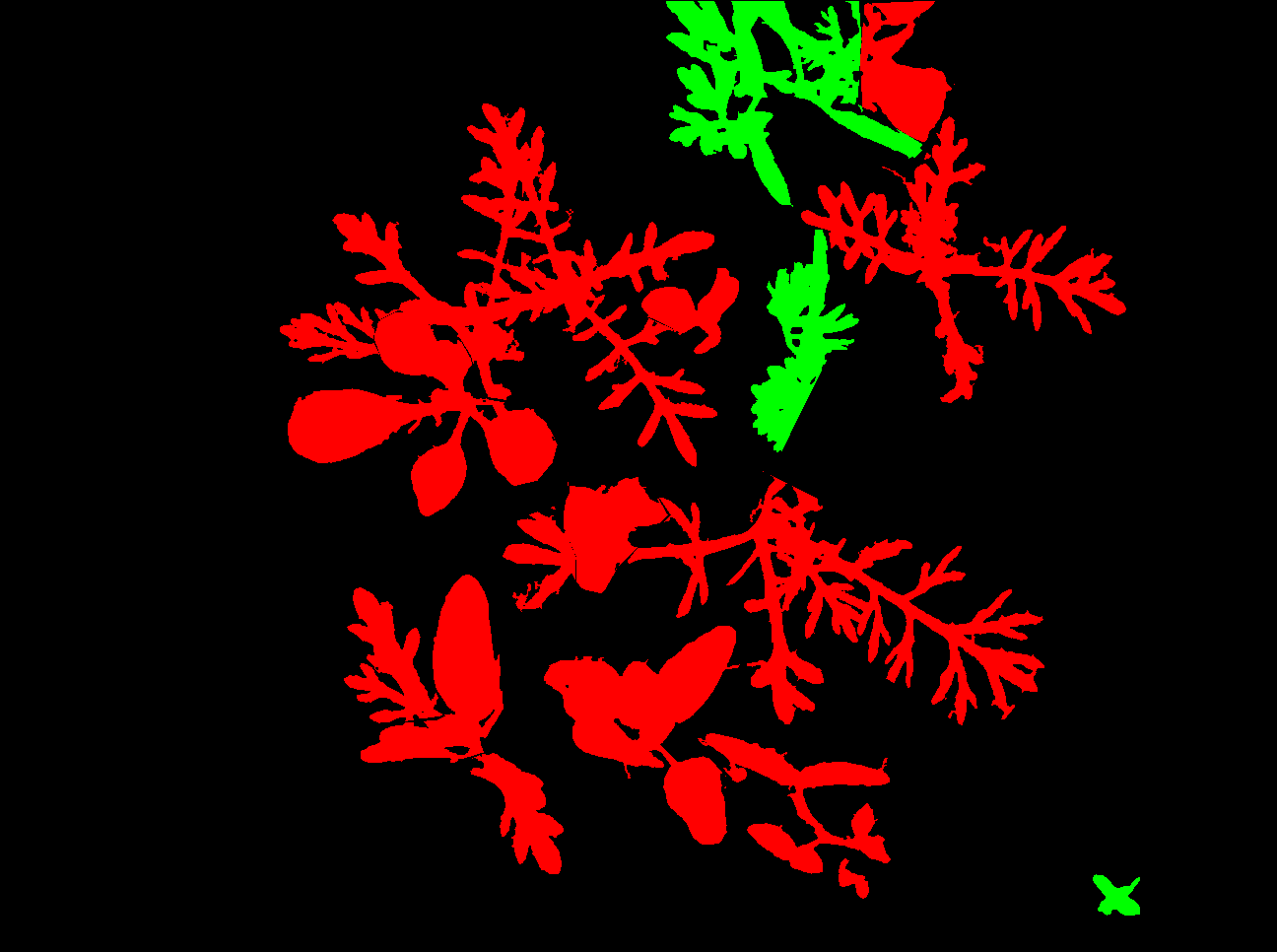Hi , I am using SegNet for image segmentation.
But , I am getting error :
Iter:1
x torch.Size([1, 3, 256, 256])
conv1 torch.Size([1, 64, 256, 256])
layer1 torch.Size([1, 256, 256, 256])
layer2 torch.Size([1, 512, 256, 256])
layer3 torch.Size([1, 1024, 256, 256])
layer4 torch.Size([1, 2048, 256, 256])
/opt/anaconda/lib/python3.6/site-packages/torch/nn/modules/upsampling.py:180: UserWarning: nn.UpsamplingBilinear2d is deprecated. Use nn.Upsample instead.
warnings.warn("nn.UpsamplingBilinear2d is deprecated. Use nn.Upsample instead.")
---------------------------------------------------------------------------
RuntimeError Traceback (most recent call last)
<ipython-input-75-a24d68a5b61a> in <module>()
8 targets = Variable(labels)
9
---> 10 outputs = model(inputs)
11 optimizer.zero_grad()
12 print("outputs size ==> ",outputs.size())
/opt/anaconda/lib/python3.6/site-packages/torch/nn/modules/module.py in __call__(self, *input, **kwargs)
323 for hook in self._forward_pre_hooks.values():
324 hook(self, input)
--> 325 result = self.forward(*input, **kwargs)
326 for hook in self._forward_hooks.values():
327 hook_result = hook(self, input, result)
<ipython-input-7-8f80fe0445f5> in forward(self, x)
60 self.layer5c(x),
61 self.layer5d(x),
---> 62 ], 1))
63
64 print('final', x.size())
RuntimeError: inconsistent tensor sizes at /opt/conda/conda-bld/pytorch_1513368888240/work/torch/lib/TH/generic/THTensorMath.c:2864
This is my network code :
class PSPNet(nn.Module):
def __init__(self, num_classes):
#super(PSPNet,self).__init__()
super().__init__()
resnet = models.resnet101(pretrained=True)
self.conv1 = resnet.conv1
self.layer1 = resnet.layer1
self.layer2 = resnet.layer2
self.layer3 = resnet.layer3
self.layer4 = resnet.layer4
for m in self.modules():
if isinstance(m, nn.Conv2d):
m.stride = 1
m.requires_grad = False
if isinstance(m, nn.BatchNorm2d):
m.requires_grad = False
self.layer5a = PSPDec(2048, 512, 60)
self.layer5b = PSPDec(2048, 512, 30)
self.layer5c = PSPDec(2048, 512, 20)
self.layer5d = PSPDec(2048, 512, 10)
self.final = nn.Sequential(
nn.Conv2d(2048, 512, 3, padding=1, bias=False),
nn.BatchNorm2d(512, momentum=.95),
nn.ReLU(inplace=True),
nn.Dropout(.1),
nn.Conv2d(512, num_classes, 1),
)
def forward(self, x):
print('x', x.size())
x = self.conv1(x)
print('conv1', x.size())
x = self.layer1(x)
print('layer1', x.size())
x = self.layer2(x)
print('layer2', x.size())
x = self.layer3(x)
print('layer3', x.size())
x = self.layer4(x)
print('layer4', x.size())
x = self.final(torch.cat([
x,
self.layer5a(x),
self.layer5b(x),
self.layer5c(x),
self.layer5d(x),
], 1))
print('final', x.size())
return F.upsample_bilinear(final, x.size()[2:])
And here I am running it :
for epoch in range(1, num_epochs+1):
epoch_loss = []
iteration=1
for step, (images, labels) in enumerate(trainLoader):
print("Iter:"+str(iteration))
iteration=iteration+1
inputs = Variable(images)
targets = Variable(labels)
outputs = model(inputs)
optimizer.zero_grad()
print("outputs size ==> ",outputs.size())
print("targets[:, 0] size ==> ",targets[:, 0].size())
loss = criterion(outputs, targets[:, 0])
loss.backward()
optimizer.step()
epoch_loss.append(loss.data[0])
average = sum(epoch_loss) / len(epoch_loss)
print("loss: "+str(average)+" epoch: "+str(epoch)+", step: "+str(step))
The error is coming from the argument 1 of
x = self.final(torch.cat([
x,
self.layer5a(x),
self.layer5b(x),
self.layer5c(x),
self.layer5d(x),
], **1**))
Can anyone please help me to solve this problem ?
Thanks in advance.



